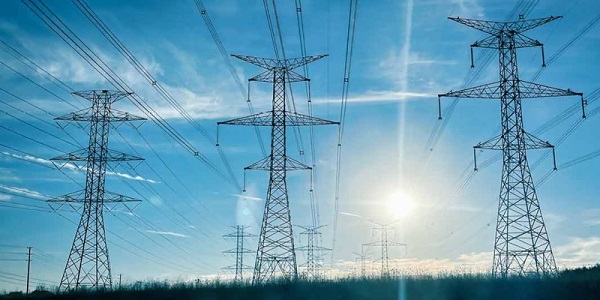Energy
Russia says it will cut oil production over Western caps
By David Mchugh And Vladimir Isachenkov in Moscow
MOSCOW (AP) — Russia announced Friday that will cut oil production by 500,000 barrels per day next month after Western countries capped the price of its crude over its action in Ukraine.
“As of today, we fully sell all our crude output, but as we stated before, we will not sell oil to those who directly or indirectly adhere to the ‘price ceiling,’” Deputy Prime Minister Alexander Novak said in remarks carried by Russian news agencies.
“In connection with that, Russia will voluntarily cut production by 500,000 barrels a day. It will help restore market-style relations,” he said.
Analysts have said one possible Russian response to the cap would be to slash production to try to raise oil prices, which could eventually flow through to higher gasoline prices at the pump as less oil makes it to the global market.
International benchmark Brent crude rose 2.2% Friday, to $86.42 per barrel.
The Group of Seven major democracies have imposed a $60-per-barrel price cap on Russian oil shipped to non-Western countries. The goal is to keep oil flowing to the world to prevent price spikes that were seen last year, while limiting Russia’s financial gains that can be used to pay for its campaign against Ukraine.
The cap is enforced by barring Western companies that largely control shipping and insurance services from moving oil priced above the limit.
Russia has said it will not sell oil to countries observing the cap, a moot point because Russian oil has been trading below the price ceiling recently. However, the cap, an accompanying European Union embargo on most Russian oil and lower demand for crude have meant that customers in India, Turkey and China have been able to push for substantial discounts on Russian oil.
The impact of a cut of 500,000 barrels per day is an open question as a slowing global economy reduces the thirst for oil.
The OPEC+ alliance of oil producers, which includes Russia, tried to boost oil prices with an October announcement that it would cut production by 2 million barrels per day, only to see prices fall below $80 per barrel by December.
Asked if Russia consulted OPEC+ members about Moscow’s new production cut, Kremlin spokesman Dmitry Peskov said “there had been conversations with some members of the OPEC+” before the move was announced. He didn’t offer any details.
But Novak insisted in a statement later that Moscow made the move without consulting anyone.
“It’s a voluntary cut; there have been no consultations with anyone regarding it,” the deputy prime minister said, according to the Russian media.
The new reduction could be “an early sign that Russia might try to weaponize oil supplies after last year’s failed attempt to weaponize natural gas,” said Simone Tagliapietra, an energy policy expert at the Bruegel think tank in Brussels.
But that could be difficult to accomplish because it’s easier to find alternative supplies of oil, traded through tankers that crisscross the globe, than to replace natural gas, which before the war mostly came by pipeline.
Russian exporter Gazprom has cut off most supplies of natural gas to Europe, citing technical issues and refusal by some customers to pay in Russian currency. European officials call it retaliation for supporting Ukraine.
Europe did suffer from resulting high natural gas prices but has managed to replace much of the lost Russian supply from other sources including shipborne liquefied gas from the U.S. and Qatar. Natural gas prices have since come down from all-time highs last summer but are still three times higher than before Russia massed troops on the Ukraine border.
___
McHugh reported from Frankfurt, Germany.
Artificial Intelligence
World’s largest AI chip builder Taiwan wants Canadian LNG
Taiwan Semiconductor Manufacturing Company’s campus in Nanjing, China
From the Canadian Energy Centre
Canada inches away from first large-scale LNG exports
The world’s leading producer of semiconductor chips wants access to Canadian energy as demand for artificial intelligence (AI) rapidly advances.
Specifically, Canadian liquefied natural gas (LNG).
The Taiwan Semiconductor Manufacturing Company (TSMC) produces at least 90 per cent of advanced chips in the global market, powering tech giants like Apple and Nvidia.
Taiwanese companies together produce more than 60 per cent of chips used around the world.
That takes a lot of electricity – so much that TSMC alone is on track to consume nearly one-quarter of Taiwan’s energy demand by 2030, according to S&P Global.
“We are coming to the age of AI, and that is consuming more electricity demand than before,” said Harry Tseng, Taiwan’s representative in Canada, in a webcast hosted by Energy for a Secure Future.
According to Taiwan’s Energy Administration, today coal (42 per cent), natural gas (40 per cent), renewables (9.5 per cent) and nuclear (6.3 per cent), primarily supply the country’s electricity.
The government is working to phase out both nuclear energy and coal-fired power.
“We are trying to diversify the sources of power supply. We are looking at Canada and hoping that your natural gas, LNG, can help us,” Tseng said.
Canada is inches away from its first large-scale LNG exports, expected mainly to travel to Asia.
The Coastal GasLink pipeline connecting LNG Canada is now officially in commercial service, and the terminal’s owners are ramping up natural gas production to record rates, according to RBN Energy.
RBN analyst Martin King expects the first shipments to leave LNG Canada by early next year, setting up for commercial operations in mid-2025.
Energy
Guilbeault’s Emissions Obsession: Ten Reasons to Call Time Out on Canada’s CO2 Crusade
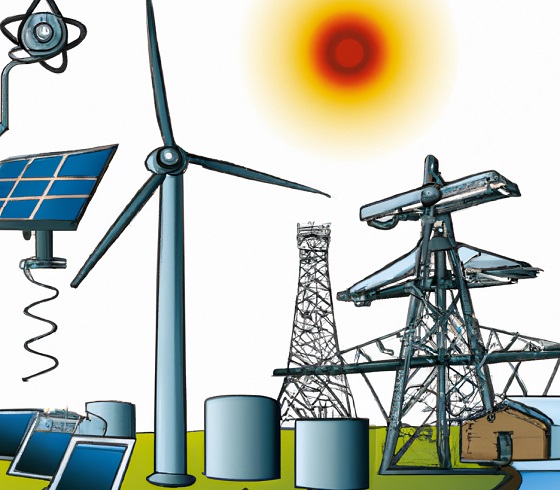
From the Frontier Centre for Public Policy
Before we collectively devastate our economies, further reduce our birth rates in a misguided attempt to save the planet, squander trillions of dollars, and halt human progress by making energy both scarce and exorbitantly expensive, it’s crucial to remember that human-induced climate change is not a settled fact, but rather a hypothesis largely unsupported by the history of the climate but supported by climate models that have considerable error built into them.
Canadian Environment Minister Steven Guilbeault recently announced a plan requiring the oil and gas industry to cut CO2 emissions by more than one-third from 2019 levels by 2030. This deadline might seem far off, but it also stipulates that at least 20 percent of light-duty vehicle sales must be zero-emission by 2026, a deadline that’s just around the corner. This is all part of Guilbeault’s strategy to achieve the ambitious net-zero emissions target by 2050.
There are at least ten reasons suggesting that this plan is absurd.
- CO2 is Not a Pollutant.
Carbon dioxide is, in fact, a fertilizer crucial for the growth of all vegetation. Higher concentrations of CO2 result in increased crop yields and more productive forests. Healthier forests, in turn, absorb more CO2, providing oxygen in exchange which is essential for the survival of all living organisms including humans.
- CO2 is a Trace Gas
During my extensive career as a university professor, I encountered numerous students eager to support policies that might devastate the livelihoods of thousands of men and women who depend on the oil and gas industry, believing these sacrifices would save the planet. Their near-religious zeal was only matched by their stunning ignorance of basic CO2 facts.
Class surveys I conducted showed that almost one hundred percent of my students were unaware that CO2 is a trace gas, with its atmospheric concentration having varied significantly over centuries and even seasonally. Currently, CO2 represents about 0.04% of the atmospheric gases, or approximately 420 parts per million (ppm). By comparison, nitrogen makes up about 78%, and oxygen around 21%.
The best estimates suggest that human activities contribute roughly 4% of the total annual CO2 emissions (16 ppm). Canada’s share of global emissions is approximately 1.5% (0.24 ppm), essentially a rounding error in the total calculation.
- Why Alberta and Not China?
It is no secret that Guilbeault harbours a special animosity towards Alberta. His energy regulations appear designed to severely impact Alberta’s economy despite the province being a relatively minor player on the global stage. In contrast, China, by far the largest contributor to global CO2 emissions, builds two new coal-powered (dirty) power plants every week and is the primary beneficiary of Canada’s coal exports. Why doesn’t Guilbeault turn his scornful gaze towards the People’s Republic? Even during his visit to China in August 2023 for climate talks, not only did he overlook that country’s appalling environmental track record, to add insult to injury, while there he critiqued Suncor for recommitting to oil sands development, highlighting a troubling policy double standard.
- Watch What They Do, not What They Say
The economic and cultural elites, who incessantly warn of an impending climate catastrophe, seem to contradict their own claims by their extravagant lifestyles. Their opulent residences, frequent use of private jets, and other extravagances reveal a significant disconnect between their rhetoric and their behaviour, suggesting either hypocrisy or a lack of belief in the very crisis they promote.
- Magical Thinking
When they purport to compel the oil and gas industry to adopt new technologies, politicians and policymakers indulge in a particularly delusional form of magical thinking. First, the industry is already one of the most innovative sectors in the economy. Second, these individuals demonstrate a profound ignorance of both climate change and the complex challenges of energy production. As is typical of low-information politicians, they seem to believe that all they need to do to enact change in line with their utopian ideals is to snap their fingers or twitch their collective nose.
- A Multiplier of Human Misery
All the regulations that politicians like Guilbeault introduce with a regularity that rivals the proverbial cuckoo clock have nothing to do with creating new sources of energy or making energy more accessible and affordable. If they were genuinely concerned about their constituents’ welfare, these politicians would incentivize nuclear energy. But they conspicuously do not. These incessant regulations, taxes, and oppressive energy policies serve one purpose: to inflate energy prices so high that middle-class individuals are forced to drive less, reduce their energy use for heating and cooling their homes, and drastically curbing manufacturing. To the extent that such policies persist, they will impose an increasingly devastating economic burden on the poor and the working class.
- Extreme Weather Events
A radical reduction in CO2 emissions will not only lead to a weaker economy and increased poverty, but it will also diminish our capacity to respond to extreme weather conditions, which will occur regardless of the taxation governments impose on human activities.
- The Used-Car Salesman Syndrome
You know you’re being conned when a used car salesperson fails to mention the downsides of the vehicle being considered. The same skepticism and caution should be applied to politicians who tout only the benefits of their proposed policies without discussing the costs. Either they are blissfully unaware of these costs, or they believe they will be insulated from the real-world repercussions of their harmful policies due to their status, wealth, or connections.
- Anti-Human Perspective
While it’s unwise to gratuitously attribute malicious intent to anyone, the evidence suggests that proponents of radical climate change policies operate from what can only be described as an anti-human perspective. They view human beings as liabilities and parasites rather than, as the Judeo-Christian tradition asserts, the valuable assets they truly are.
- A Matter of Debate
Before we collectively devastate our economies, further reduce our birth rates in a misguided attempt to save the planet, squander trillions of dollars, and halt human progress by making energy both scarce and exorbitantly expensive, it’s crucial to remember that human-induced climate change is not a settled fact, but rather a hypothesis largely unsupported by the history of the climate but supported by climate models that have considerable error built into them.
In conclusion, Bjorn Lomborg, the Danish political scientist and founder of the prestigious Copenhagen Consensus Center—an organization renowned for producing some of the most authoritative studies on environmental issues—wisely reminds us that while there are environmental concerns needing attention, it’s questionable whether climate change constitutes an existential crisis that warrants dedicating all our resources at the expense of human life and flourishing.
Pierre Gilbert is Associate Professor Emeritus at Canadian Mennonite University. He writes here for the Frontier Centre for Public Policy.
-

 Economy2 days ago
Economy2 days agoThe White Pill: Big Government Can Be Defeated (Just Ask the Soviet Union)
-

 Brownstone Institute2 days ago
Brownstone Institute2 days agoA Potpourri of the World’s Unexposed Scandals
-
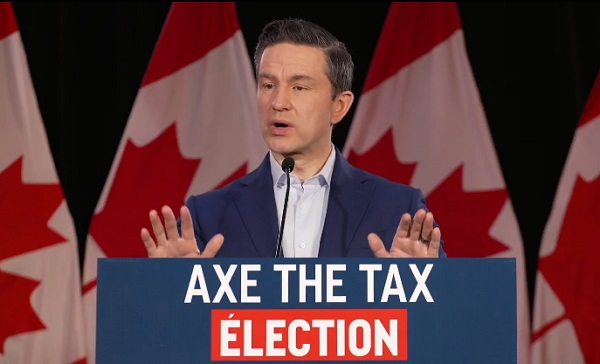
 National2 days ago
National2 days agoAs Trudeau’s government teeters, Pierre Poilievre pushes for immediate election call
-

 COVID-192 days ago
COVID-192 days agoDrug store to pay $10k to Canadian woman denied prescription over COVID mask dispute
-
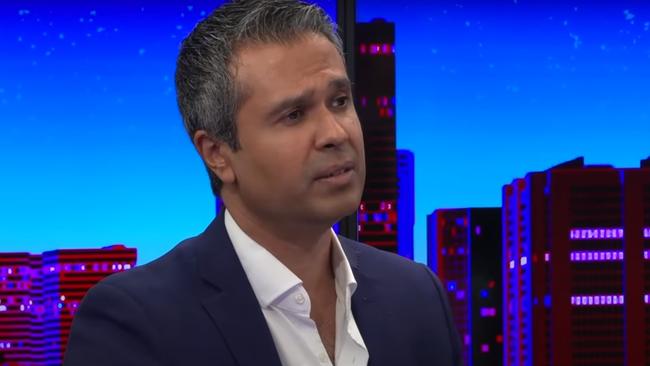
 COVID-191 day ago
COVID-191 day agoEsteemed UK Doctor pleads with governments to cancel COVID-19 vaccines
-
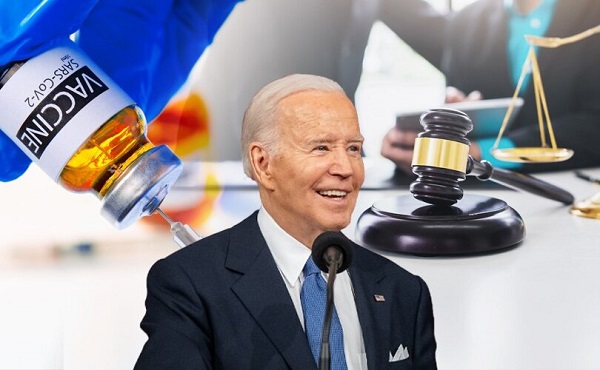
 COVID-192 days ago
COVID-192 days agoBiden HHS extends immunity for COVID shot manufacturers through 2029
-
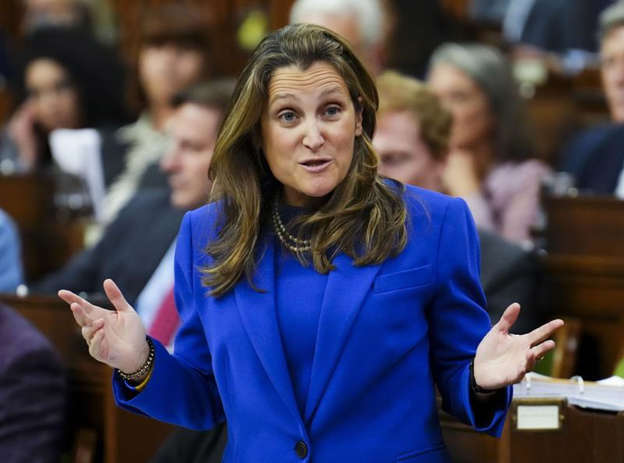
 Business2 days ago
Business2 days agoPublic Accounts of Canada Report Buried on Last Day of Sitting Session
-

 Bruce Dowbiggin2 days ago
Bruce Dowbiggin2 days agoMLB’s Exploding Chequebook: Parity Is Now For Suckers



